Chances are you know at least some of these things dogs shouldn’t eat – and in most cases, nor should cats and other types of pets.
But you may be surprised to learn some of your other favourite foods and snacks are toxic to pets. Many can make our pets very sick or even kill them!
So if you enjoy indulging in these foods and other items, be sure to keep them well out of reach of your dog or cat.
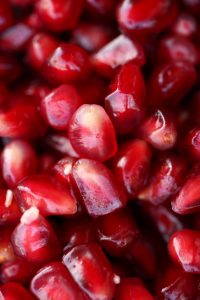

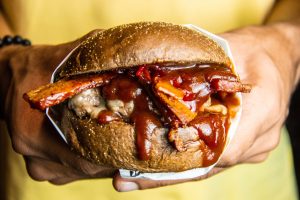



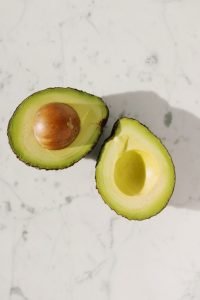
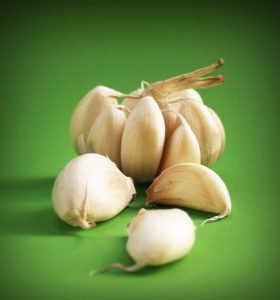
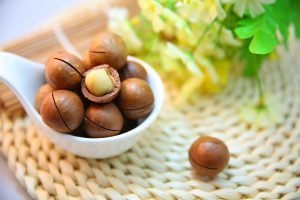
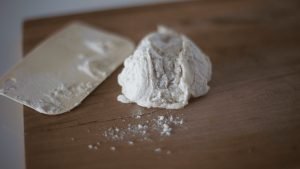


- Chocolate: It’s probably the most commonly known food fact – that chocolate toxic to pets. That is because pets are much more susceptible to the effects of caffeine, as well as another less-known compound called theobromine. Together, they can cause an upset stomach, tremors, seizures and even death. And the darker the chocolate, the more toxic it is, due to higher amounts of these two ingredients.
- Coffee: Just like chocolate, the caffeine in coffee also means this human pick-me-up is not one for sharing with the furry members of the family!
- Fatty meats: This one may surprise a lot of people, as you’d expect pets (especially dogs!) would love to eat the fatty offcuts of meat. But high-fat meats such as sausages, pork crackling and even turkey skins can cause inflammation of the pancreas. Especially if your dog or cat eats large quantities of them. Vets suggest that in extreme scenarios, it can prove fatal for pets. So lay off the fatty meats to avoid having an unhealthy dog on your hands.
- Grapes, sultanas and raisins: Fruits may seem harmless – they are natural afterall! But grapes, and their dehydrated by-products of sultanas and raisins, are actually harmful to pets if eaten, and can cause kidney failure.
- Avocado: Another fruit that is believed to be harmful for pets and many other animals is avocado. And toxins aside, the hard seed is a choking hazard for pets!
- Seeds and kernels: Some seeds and kernels often aren’t actually eaten by people, but they can be consumed by pets – particularly greedy dogs where food doesn’t touch the sides of their mouth!
- Apple seeds and apricot kernels are among the worst offenders, as they actually contain or can break down into cyanide when eaten. That makes them unsafe for consumption by pets as well as people. Raw apricot kernels are even banned from sale by Food Standards Australia New Zealand, after several reports of people being hospitalised with cyanide poisoning from eating them! But also beware of nutmeg, which humans do eat but is unhealthy for dogs.
- Macadamia nuts: Some people enjoy macadamia nuts on their own, but they are also commonly found in many baked goods and some cereals. Yet, just like grapes, macadamia nuts are another natural food that is a no-no for pets. Pale gums, weakness, pain, tremors and vomiting are common signs that a pet has tucked into these.
- Chewing gum: People know and teach children not to swallow chewing gum, but it’s not so easy when it comes to dogs and cats. And it’s worth noting that one of the ingredients in chewing gym, xylitol – a natural sweetener – is poisonous to dogs, and can potentially lead to liver failure. It’s worth noting that as well as chewing gum, xylitol is also found in many mints and other lollies, so be sure to keep your minty fresh breath gums and sweets out of reach of your pet.
- Onion and garlic: People love adding onion and garlic to cooking because of their strong flavours, but when eaten by pets, they cause stomach upsets and even anaemia (a blood condition) – leading to a very sick and unhealthy dog. In fact, pets should be kept separate from your vegetable garden (and not just to protect your plants!) because these bulbs aren’t the only ones toxic to pets. Tomato and potato plants are poisonous to dogs and other pets, as are potatoes that are still green, and so too are the leaves or other parts of various other plants. (See our separate article on 26 garden plants that are poisonous to dogs)
- Yeast dough: Uncooked dough that contains yeast can actually be deadly for pets. That is because under temperature (such as inside your dog or cat’s stomach), the dough expands and produces alcohol. This in turn can cause abdominal bloating and pain, among other symptoms. This may not sound so bad, but in severe cases, it can cause coma and death.
- Aspirin and paracetamol: Medicines aren’t really a food, so we haven’t counted them in this list. However people do readily consume medications, and both aspirin and paracetamol are some of the most commonly found medications in households. But while they might be considered mild for us, both can cause a range of problems in pets, some of which can be fatal. According to the Animal Emergency Centre, cats are particularly sensitive to paracetamol.
- Cigarettes: Ok this so this isn’t a food either, but it’s something that many people still consume themselves (albeit via smoking rather than eating), meaning cigarettes can be accessible to dogs who love to chew things. And so it’s worth noting that the nicotine contained in cigarettes is highly toxic to pets – in severe cases, chewing and swallowing cigarettes can be fatal. So if you’re a smoker, keep your cigarettes locked away from where pets may be able to reach them!
Animal Emergency Centre
https://www.aecvets.com.au/wp-content/uploads/2019/09/Common-Pet-Toxins-2016.pdf
Burke’s Backyard
Food Standards Australia New Zealand
https://www.foodstandards.gov.au/consumer/safety/Pages/Apricot-kernels-raw.aspx
Vet Voice (Australian Veterinary Association)










